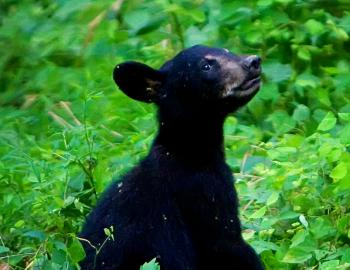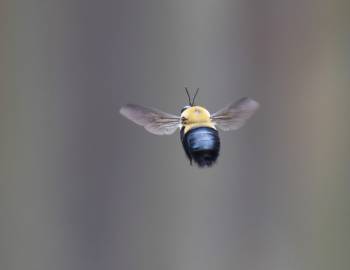The ladybug is a small reddish or greenish bug, with a smooth surface and black spots. They do not harm humans, nor...
You are here
Tips for Smokies Wildlife & Other Challenges
The Smoky Mountains aren't just sunshine, mountains, and rainbows. These mountains are filled with animals and insects and sometimes come with challenges. To learn more about what you may experience while visiting the Smokies click the links below.
SMOKY MOUNTAIN CRITTERS
Our units are treated by a pest control company to ensure that it is well taken care of. If you should find dead insects in the cabin, just sweep them up and dispose of them. There is no need to call. Dead insects signify that our pest control company has done its job. If you find a few live bugs, please do not be alarmed. This is quite common in the mountains and woods especially if a door is left open for any length of time. They like a nice place to stay also. There are NO Refunds for insects, bugs, etc. If an insect becomes an issue, we can call an exterminator to take care of that
issue while you’re there.
Luck of the Lady Bug
Several years ago the National Park Service released several million Asian Beetles into the park to fight a tree-killing insect that is destroying thousands of park trees. The beetle actually eats the food source of the bug causing the destruction. The Gatlinburg area is home to a large population of these lucky ladybugs. Unfortunately, there is no formula for getting rid of them other than to vacuum or sweep them up. Since these bugs were introduced to fight a problem in the National Park, the Park Service will not allow us to spray specifically for Ladybugs. The Ladybug likes warm, sunny places such as windows. We are constantly removing Ladybugs from the house, only to find them back again within hours.
Cluster Flies
These insects sometimes called “attic flies”, also find their way into the house from time to time. They usually appear in late fall and early winter and again on warm, sunny days in early spring, sometimes in large numbers. They buzz around the house and gather in large numbers at windows. The Cluster Flies are a little larger than the common house fly and move sluggishly. The best prevention of Cluster Flies is to vacuum them up once they have settled in the higher windows and upper rooms of the house. We are constantly removing Cluster Flies from the house, only to find them back again within hours.
Wood Roaches
Now is the time when homeowners will notice medium-sized cockroaches wandering about the house in the middle of the day. These are usually wood cockroaches, also known as wood roaches. Wood Roaches are similar in appearance to household cockroaches, but they live exclusively outdoors. They live in rotted logs, tree stumps, hollow trees, and under the loose bark of dead trees and firewood. They are especially noticed at this time when the males are active and attracted
to lights.
Scorpion
If you ask a Tennessean about a scorpion sighting, the answers usually range from a frown to “I think you’re in the wrong state.” Scorpions can control the amount of venom injected. Venom is injected by throwing the tail over the head and into the prey. The Venom of a scorpion found in Tennessee is similar to that of a honey bee sting. These scorpions are not like the scorpions found in the Western United States. The severity of the reaction is dependent upon the sensitivity of each individual’s body to the venom. Scorpions are like spiders, kill on contact. There is no pest control
prevention.
Wasp
Wasps may appear during warm spurts in the winter, spring, and late fall. Please be aware that when we experience unseasonable warm weather wasps begin to awaken from their winter slumber thinking it is springtime. Sometimes just a few and other times there may be many of them. While we do all we can to prevent this, you may notice an infestation during these times of the year. If you are allergic to wasps & bee stings please be prepared with the appropriate medications.
Carpenter Bees
During the spring carpenter bees hover around unfinished wood such as eves, railings, etc. You will see round holes and coarse sawdust-like substances around the house. These bees typically do not sting. The males don’t even have a stinger.
Displaying 1 - 5 of 5





